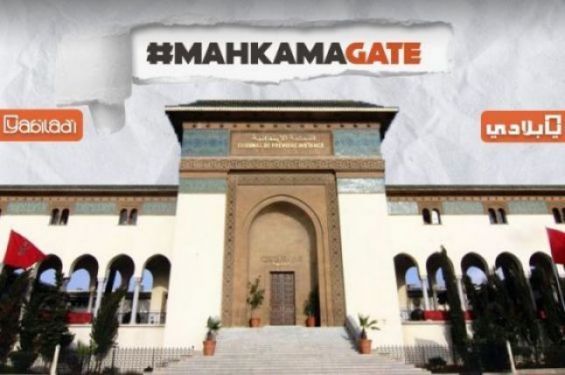One day after Yabiladi revealed that thousands of recovery cases at the Casablanca Court of First Instance have been handled record periods and without summoning debtors, we are back with the names of the main parties involved in the scandal. With the exception of the clerks, which would be too tedious to list here, we focused on the lawyers, judges and companies.
To do this, we mainly relied on a public database platform called Mahakim.ma, where we found valuable details on the 81,375 judgments delivered by the same judges. While the names of the judges and the creditors are easy to find on the platform, trying to identify those of the lawyers hired by the plaintiffs was not an easy task.
Yabiladi tried to contact each of the lawyers to have them comment on the cases. However, we were unable to reach Mohamed Fakhar, a lawyer who deals with recovery cases from several companies (Axa Insurance, Attijariwafa Bank, BMCI Crédit Conso). Mostafa Jeddad (Orange Maroc, Vivalis, Wafasalaf) hung up at the moment he knew he was talking to one of our journalists. Jamal Erradi and Mohamed Nouri, lawyers of Maroc Telecom, remained unreachable.
For some lawyers, the practices remain «justifiable»
Driss Chraïbi, a lawyer hired by Wafasalaf (which manages consumer loans on behalf of Crédit du Maroc) answered some of our questions. He did not seem surprised by the exceptional volume of cases judged at the first hearing and without the other party’s defense, which violates article 120 of the Constitution, article 111 of Law No. 31.08, and the article 39 of the Code of Civil Procedure.
«If the files are complete and all of their elements make it possible to move very quickly through the trial, it is possible to deal with several at once, depending on the capacities and means of the parties involved in this process [magistrates, lawyers in charge of the file, note]», he explained.
«It does not always happen (that 100 files from the same bank are processed at once, editor's note), but it is possible», Noureddine Houssaini Iraqui, lawyer in charge of debt recovery cases for the National Office for Electricity and Drinking Water (ONEE), Société Générale, and Barid Bank said.
Contacted also on Thursday evening, the Lawyer Association in Casablanca demanded to be sent an official letter from Yabiladi to comment on the issue. However, a source within this body assured that the victims can also seek the help of the president of the association, who is entitled to react in such circumstances.
For his part, Farid Morjane, president of the National Order of judicial officers, said he does not think, «that they all court summons included mistaken addresses». Answering our questions about the alleged involvement of some of his peers, he said that «a bailiff is only carrying out orders, because he has an address that he must rely on to send court summons».
«If the address is not correct, the bailiff returns the summons, indicating that he was unable to deliver it to the recipient», he said, adding that «a bailiff is only questioned about the remarks he writes in his booklet». «I do not think that a bailiff will venture into a series of crimes. However, it can be an attempt by parties to a conflict to mislead the bailiff», he concluded.
The law of silence
As for creditors, aka the companies who are involved in these cases, obtaining an answer was very hard. Almost all of them were either unavailable or forwarded the matter to communication departments.
An authorized source from Axa Assurance's collection service, however, agreed to answer some of our questions. The same source stated that it is «not aware of these practices». «It is justice which is supposed to control how cases are being dealt with within the courts. We have not received any judicial or procedural notification related to this case», he added, referring to «possible dysfunctions of the judicial system».
Beyond the involvement of these companies and their lawyers, the industrialization of justice and the privatization of the Casablanca court also involves some judges. According to data compiled by Yabiladi from Mahakim.ma, ten magistrates ruled on the recovery cases in question. 47.1%, 24.5% and 10% of the cases in question were judged by judges Aziz Arssaoui, Amina Redouane and Ilham El Barhoumi respectively.
Thus this system set up at the Casablanca court has enabled several companies to convict their debtors in record time (1 week after the filing of the case in court for some), while other lawyers have to wait several months to close a case.
When a court is «privatized», it is always at the expense of the majority. The reaction of the judiciary to this scandal is obviously eagerly awaited. On the corporate side, some establishments have already taken action against their lawyers.





 chargement...
chargement...













